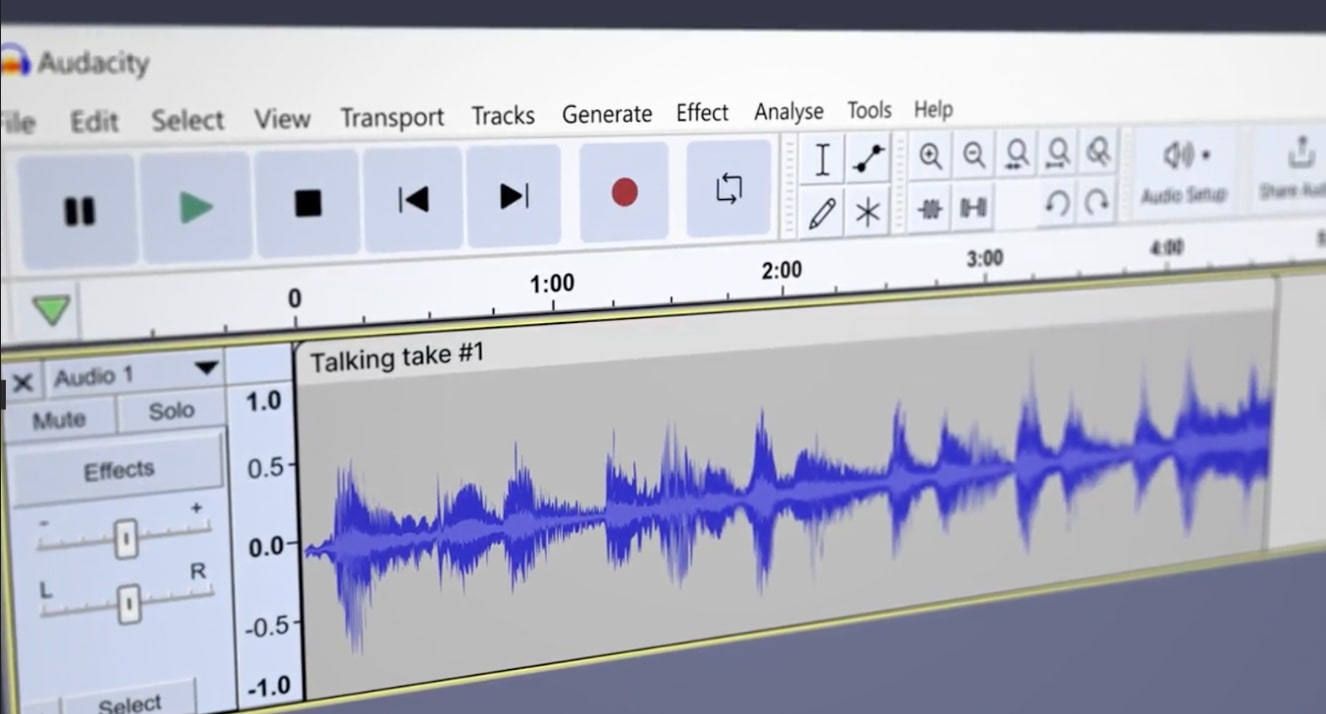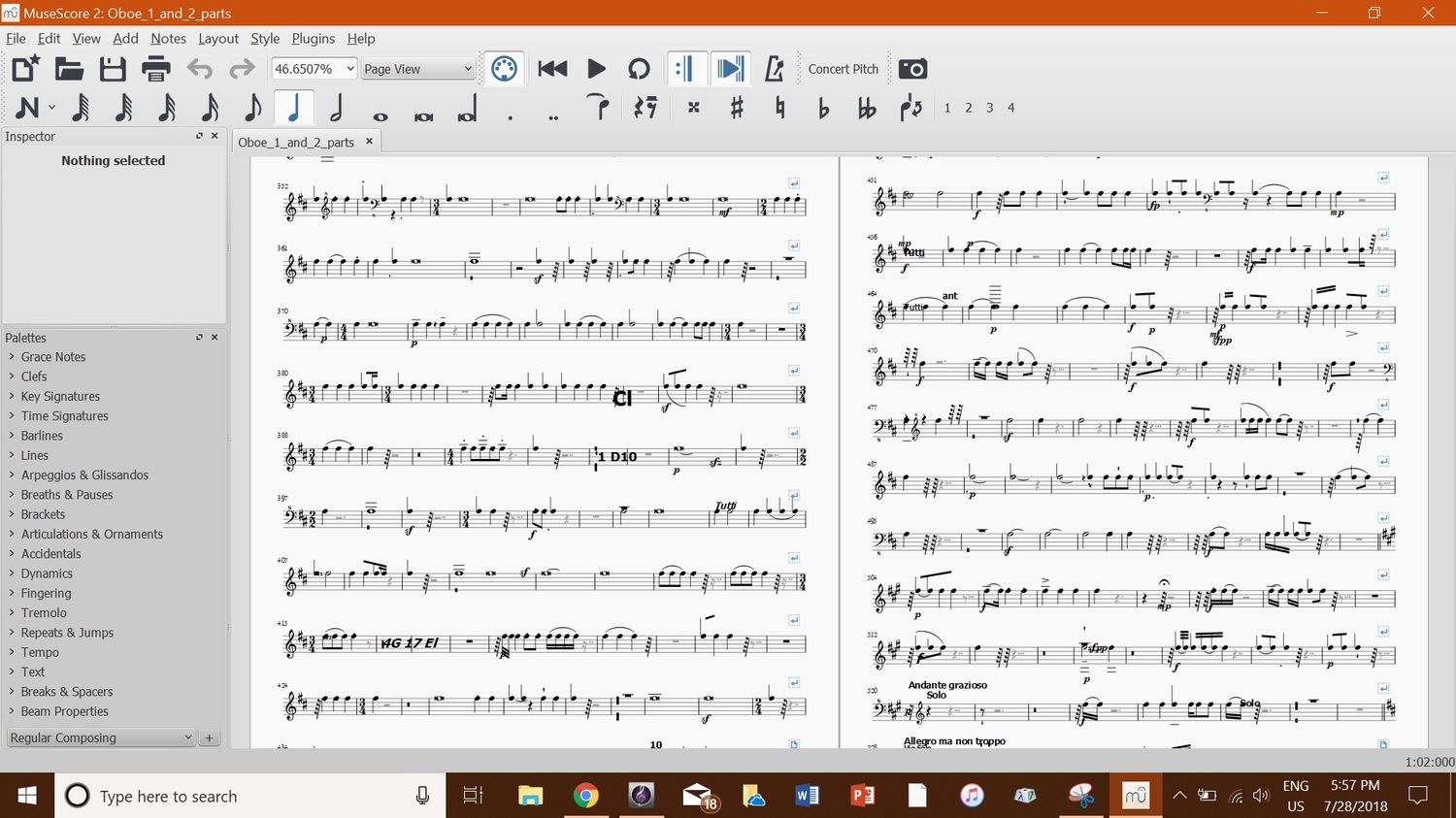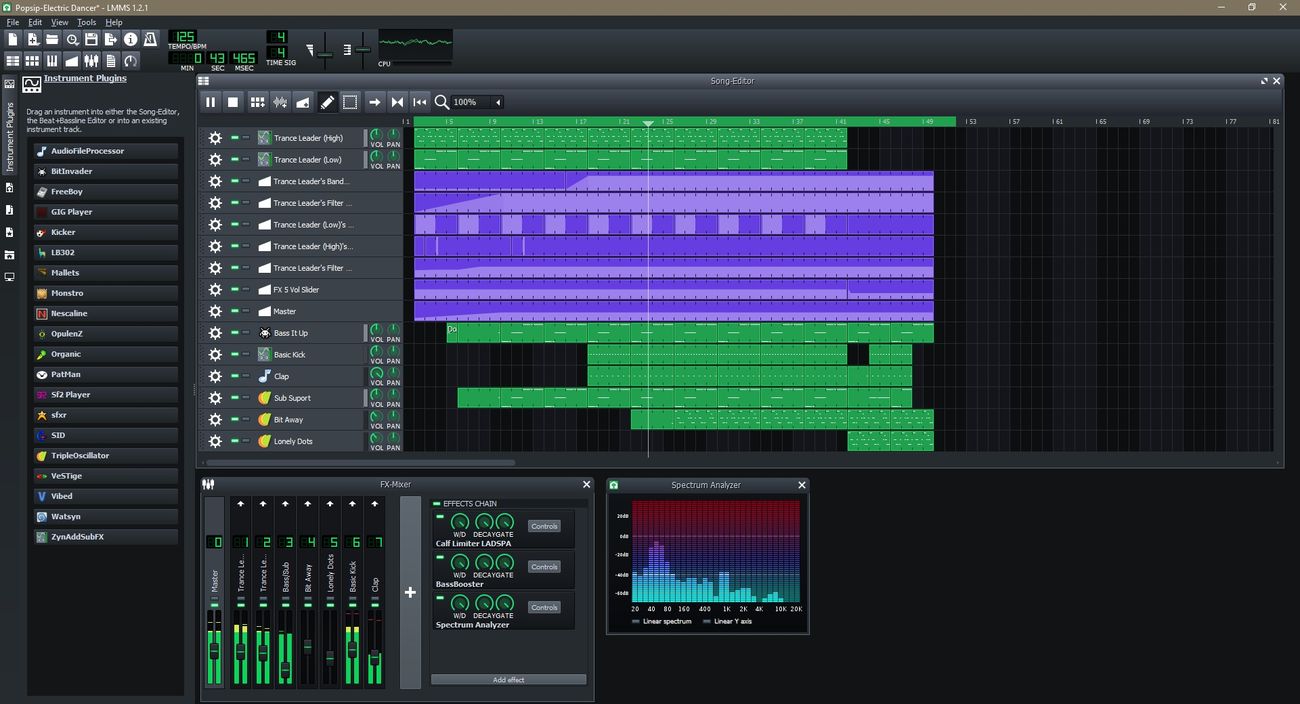Home>Production & Technology>Musician>How Is Vital Capacity Important To A Musician


Musician
How Is Vital Capacity Important To A Musician
Published: January 29, 2024
Discover why vital capacity is crucial for musicians and how it impacts their performance. Gain insights into the importance of this respiratory measure for musicians' breath control and endurance.
(Many of the links in this article redirect to a specific reviewed product. Your purchase of these products through affiliate links helps to generate commission for AudioLover.com, at no extra cost. Learn more)
Table of Contents
Introduction
When we think about musicians, we often focus on their instrumental skills, vocal range, or stage presence. However, there is another essential aspect of musicianship that often goes unnoticed: their vital capacity. Vital capacity refers to the maximum amount of air a person can exhale after taking a deep breath. It is a critical measure of lung function and plays a crucial role in a musician’s ability to perform at their best.
In the world of music, breathing is not just a bodily function but a fundamental element of technique and expression. Whether it’s using proper breath control for singing, sustaining long notes on a wind instrument, or maintaining steady rhythm while playing drums, every musician relies on their vital capacity to deliver a captivating performance.
Understanding the importance of vital capacity in music is crucial for both aspiring and professional musicians. By optimizing their breathing and increasing their vital capacity, musicians can enhance their performance, improve their endurance, and potentially prevent vocal strain or other breathing-related issues.
In this article, we will explore the significance of vital capacity in music and how it influences a musician’s performance. We will also discuss techniques and exercises that musicians can use to improve their vital capacity, along with the benefits that come with increasing this vital aspect of their craft.
Definition of Vital Capacity
Vital capacity, in simple terms, is the maximum amount of air that a person can exhale forcefully after taking a deep breath. It is a measure of lung capacity and is determined by factors such as age, gender, height, and overall lung health. Vital capacity is typically measured in milliliters (ml) and can range from around 3,000 ml to 5,000 ml in healthy adults.
There are three main components that make up vital capacity:
- Tidal Volume: This refers to the amount of air that is inhaled or exhaled during normal breathing.
- Inspiratory Reserve Volume: This is the additional air that can be inhaled after a normal breath.
- Expiratory Reserve Volume: This is the additional air that can be exhaled forcefully after a normal exhale.
By combining these three components, we can calculate the total vital capacity of an individual. It is important to note that vital capacity can vary depending on a person’s physical condition, such as athletes or trained singers who may have higher vital capacities compared to average individuals.
Measuring vital capacity is done through a pulmonary function test, which involves inhaling deeply and then exhaling forcefully into a device called a spirometer. This test provides valuable information about a person’s lung health and can help identify any potential respiratory issues.
In the context of musicians, vital capacity becomes particularly relevant as it directly affects their ability to control their breath while performing. Whether it’s maintaining long phrases while singing or playing wind instruments, having a healthy and optimized vital capacity is essential for musicians to deliver their best performances.
The Importance of Vital Capacity in Music
Vital capacity plays a significant role in the field of music, particularly for singers and wind instrument players. Here are some reasons why vital capacity is crucial for musicians:
- Breath Control: Music requires precise control over breathing to maintain consistent and controlled sound production. A musician with good vital capacity can sustain longer phrases, execute smooth transitions between notes, and control the dynamics of their performance.
- Endurance: Musicians often engage in prolonged performances or practice sessions, which can be physically demanding. Proper breathing and a larger vital capacity can help musicians maintain endurance and prevent fatigue during long sets or rehearsals.
- Expressiveness: The ability to vary breath pressure and volume allows musicians to add nuance and expressiveness to their performance. A larger vital capacity provides more control over dynamics, allowing for delicate pianissimos and powerful fortissimos.
- Vocal Health: Singers rely heavily on optimal breathing techniques to protect their vocal cords and avoid strain. With proper breath support from a well-developed vital capacity, singers can prevent vocal fatigue, maintain vocal health, and reduce the risk of vocal damage.
- Phrasing and Articulation: Vital capacity enables musicians to shape their musical phrases and articulate notes with precision. It allows for the subtle pauses and breaths needed to create rhythmic and expressive nuances within the music.
- Stamina: Performing music often requires musicians to sustain long-held notes or play complex passages that demand physical exertion. A larger vital capacity improves stamina, allowing musicians to execute demanding musical passages effortlessly.
Overall, vital capacity is essential for musicians as it directly influences breath control, endurance, expressiveness, vocal health, phrasing, and stamina. Musicians who prioritize developing their vital capacity are better equipped to deliver captivating performances and maintain a sustainable and healthy musical practice.
Effects of Proper Breathing and Vital Capacity on Music Performance
The way musicians breathe and utilize their vital capacity has a direct impact on their overall music performance. Here are some effects of proper breathing and a well-developed vital capacity:
- Improved Musical Phrasing: Proper breathing techniques allow musicians to shape their musical phrases more effectively. By controlling inhalation and exhalation, musicians can create expressive and musical pauses, accentuate certain notes or phrases, and maintain a sense of flow and coherence in their performance.
- Enhanced Breath Control: Adequate breath control enables musicians to control the airflow and maintain a steady and consistent sound. With a well-developed vital capacity, musicians can sustain long notes, execute gradual changes in volume, and control the timing and release of their breath for optimal musical expression.
- Increased Vocal Range: For singers, a larger vital capacity allows for a wider vocal range. Proper breath support from the diaphragm assists in reaching high notes with control and power, as well as sustaining low notes with stability and depth. This range expansion enhances the versatility and vocal capabilities of singers.
- Reduced Vocal Strain: Inadequate breath support and a limited vital capacity can lead to vocal strain and potential long-term vocal damage. By utilizing proper breathing techniques and maximizing their vital capacity, musicians can alleviate strain on their vocal cords, leading to improved vocal health and longevity.
- Increased Musical Stamina: Musicians, especially wind instrument players and vocalists, require physical stamina to perform longer pieces or participate in extended rehearsals. With proper breathing and a well-developed vital capacity, musicians can sustain their energy levels and endure the physical demands of their instrument, reducing the risk of fatigue and maintaining a consistent performance quality.
- Improved Overall Performance: When musicians have control over their breathing and utilize their vital capacity effectively, it positively impacts their overall performance. They can focus more on musical interpretation, expression, and connection with the audience, rather than being preoccupied with breath control or limitations.
In summary, proper breathing techniques and a well-developed vital capacity contribute to improved musical phrasing, breath control, vocal range, vocal health, stamina, and overall performance quality. It is essential for musicians to prioritize developing their breathing skills and maximizing their vital capacity to enhance their musical abilities and deliver exceptional performances.
Techniques to Improve Vital Capacity for Musicians
Fortunately, musicians can improve their vital capacity through specific techniques and exercises. Here are some effective methods to enhance vital capacity:
- Diaphragmatic Breathing: Also known as belly breathing, this technique focuses on fully engaging the diaphragm for deep inhalation and exhalation. Practice inhaling deeply, allowing your abdomen to expand, and exhaling slowly, feeling the gentle contraction of the diaphragm. This type of breathing strengthens the diaphragm and increases vital capacity.
- Respiratory Muscle Training: Utilize devices like spirometers or inspiratory muscle trainers to target and strengthen the muscles involved in breathing. These tools provide resistance when inhaling or exhaling, challenging the respiratory muscles and gradually increasing their strength and capacity.
- Physical Exercises: Engage in regular physical exercises, such as cardiovascular workouts and aerobic activities, to improve lung function and enhance vital capacity. Activities like swimming, jogging, or cycling can help strengthen the respiratory muscles and increase lung capacity over time.
- Breath Control Exercises: Practice controlled inhaling and exhaling using various breathing patterns, such as inhaling for a specific count, holding the breath, and then exhaling for a set duration. This type of exercise enhances breath control, expands vital capacity, and promotes better overall respiratory function.
- Vocal Exercises: For singers, vocal exercises that focus on breath support and control are particularly beneficial. Work with a vocal coach to develop exercises that strengthen the diaphragm, improve breath control, and enhance vital capacity for singing.
- Yoga and Meditation: Incorporate practices like yoga and meditation into your routine. These disciplines emphasize deep breathing and mindful awareness of the breath, which can improve lung capacity and overall respiratory function. Yoga postures and breathing techniques like “ujjayi” breathing can help expand the vital capacity and improve breath control.
Consistency is key when practicing these techniques to improve vital capacity. Incorporate them into your daily routine, dedicating regular time to focus on breath exercises and strengthening your respiratory muscles. It is important to remember to always listen to your body and not push yourself too hard, as improper technique or excessive strain can lead to potential breathing issues.
By incorporating these techniques into your musical practice, you can significantly enhance your vital capacity, improve breath control, and elevate your overall performance as a musician.
Benefits of Increasing Vital Capacity for Musicians
Increasing vital capacity offers numerous advantages for musicians. Here are some key benefits that come with improving this essential aspect of breathing:
- Enhanced Performance: By increasing vital capacity, musicians can improve their breath control, allowing them to execute longer phrases, sustain notes, and maintain consistency in sound production. This leads to more engaging and captivating performances.
- Improved Endurance: Musicians with higher vital capacity can sustain their performance for longer periods without experiencing fatigue. This endurance is particularly important during demanding or lengthy musical works, enabling musicians to maintain a high level of performance throughout.
- Reduced Vocal Strain and Risk of Injury: Increasing vital capacity can help singers avoid vocal strain and potential vocal cord disorders. Adequate breath support from a well-developed vital capacity assists in reducing vocal tension and minimizing the risk of long-term vocal injuries.
- Expanded Vocal Range: Singers can expand their vocal range by improving their vital capacity. A larger vital capacity allows for greater breath control and support, enabling singers to reach higher notes with ease and project lower notes with depth and richness.
- Improved Breath Control: Properly utilizing vital capacity enhances breath control for all musicians. This improved control allows for better phrasing, dynamics, and overall musical expression, resulting in a more polished and professional performance.
- Greater Artistic Expression: Increasing vital capacity provides musicians with a wider range of expressive possibilities. By having greater control over their breath, musicians can explore nuanced nuances in dynamics, articulation, and musical interpretation, ultimately elevating their artistic expression.
- Prevention of Breathing-Related Issues: Developing and optimizing vital capacity can help musicians prevent breathing-related problems such as shortness of breath, dizziness, or feeling lightheaded. By strengthening their respiratory system through exercises and techniques, musicians can maintain good overall lung health.
Ultimately, the benefits of increasing vital capacity extend beyond musical performances. Musicians with improved vital capacity experience better overall respiratory health, enhanced physical endurance, and increased confidence in their ability to deliver exceptional performances.
While it takes time and consistent effort to develop vital capacity, musicians who prioritize breathing exercises, techniques, and proper breath control will reap the rewards of improved performance quality and enhanced musical capabilities.
Conclusion
Vital capacity is a vital aspect of a musician’s performance and should not be overlooked. It directly influences breath control, endurance, vocal health, expression, and overall musical performance quality. By understanding the importance of vital capacity and incorporating techniques to improve it, musicians can elevate their skills and deliver captivating performances.
Through practices such as diaphragmatic breathing, respiratory muscle training, physical exercises, breath control exercises, vocal exercises, and incorporating yoga and meditation, musicians can enhance their vital capacity and reap the benefits. These benefits include improved performance, increased endurance, reduced vocal strain, expanded vocal range, enhanced breath control, greater artistic expression, and the prevention of breathing-related issues.
Developing vital capacity requires consistency, patience, and proper technique. It is important for musicians to prioritize their breath and implement these techniques into their regular practice routines. By doing so, musicians can improve their breath control, stamina, and overall lung health, enabling them to deliver their best performances and excel in their musical endeavors.
In conclusion, understanding and optimizing vital capacity is essential for musicians who strive to reach their full potential. By developing a deep understanding of their breathing and incorporating techniques to enhance their vital capacity, musicians can unlock new levels of skill, expression, and endurance, ultimately creating transformative musical experiences for themselves and their audiences.











